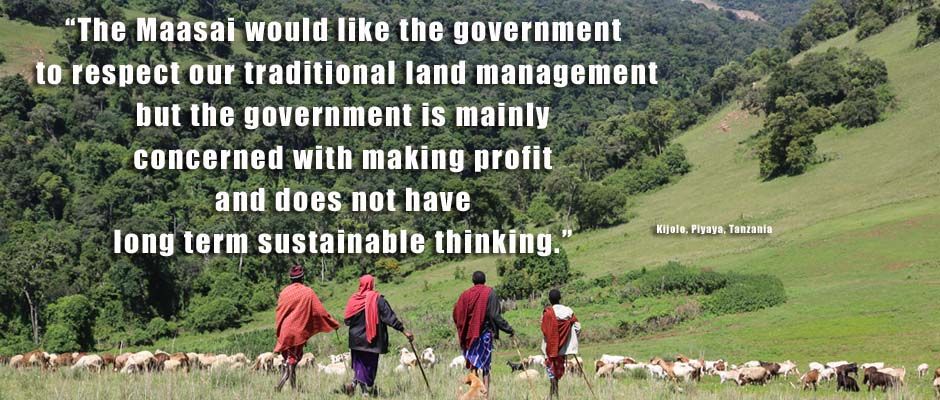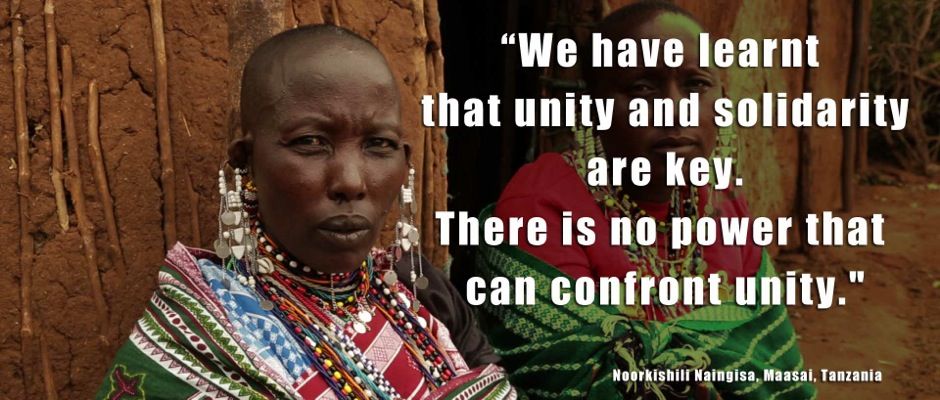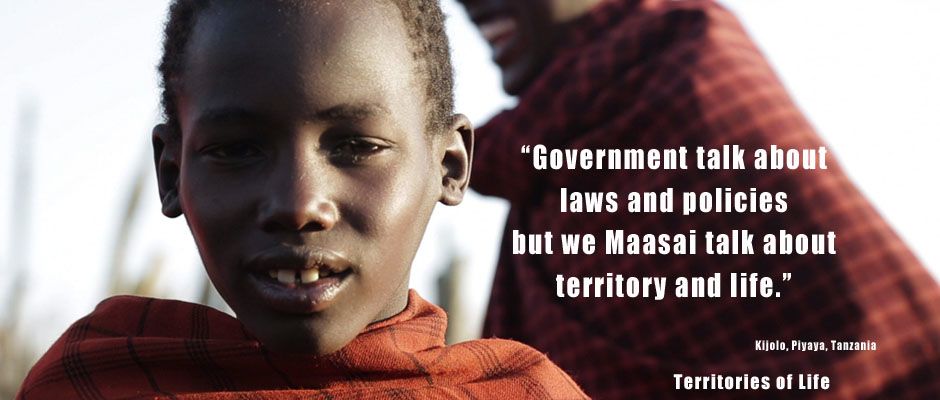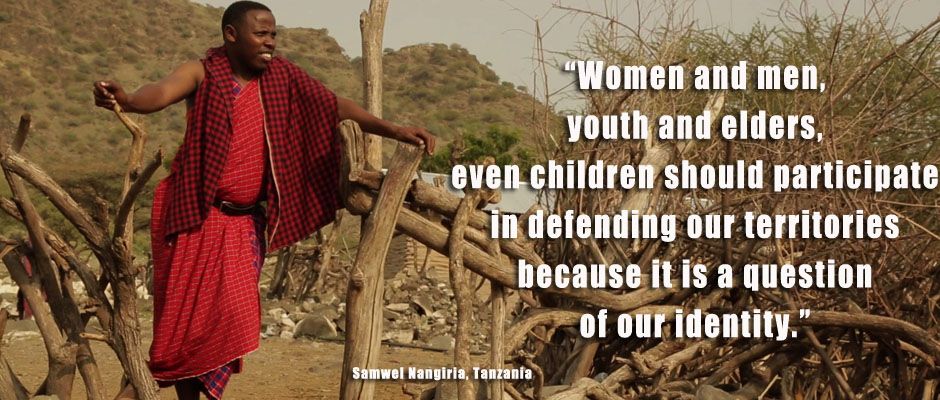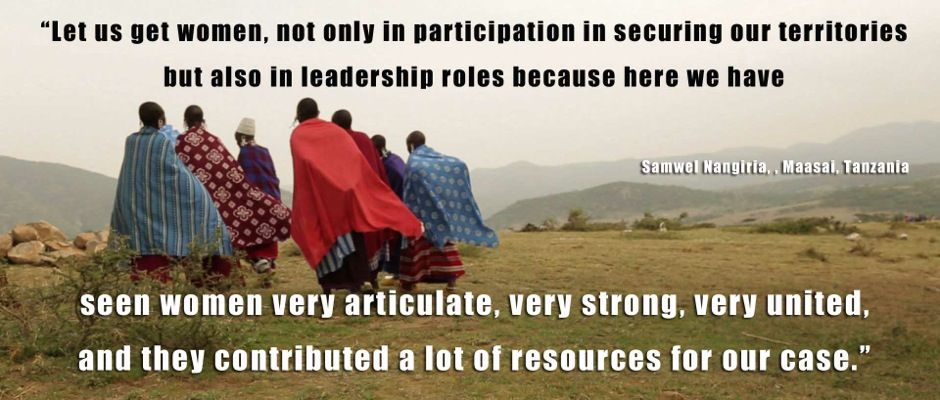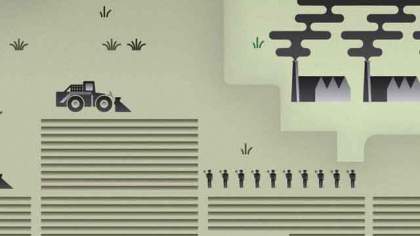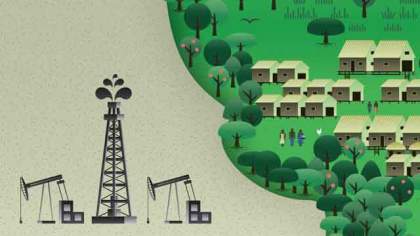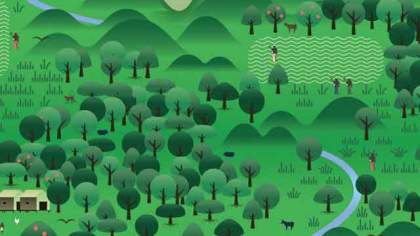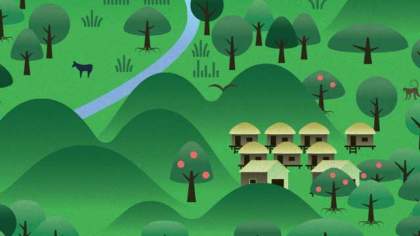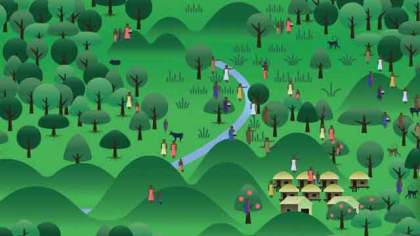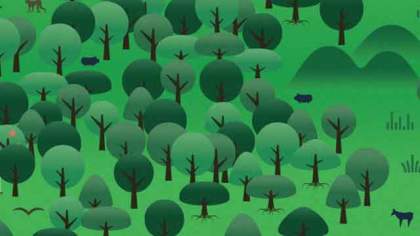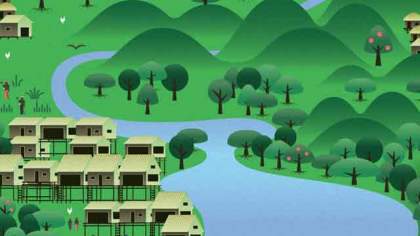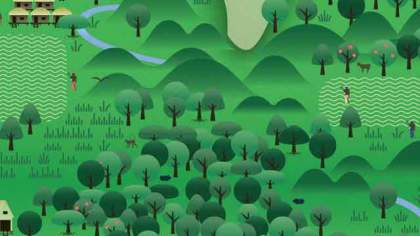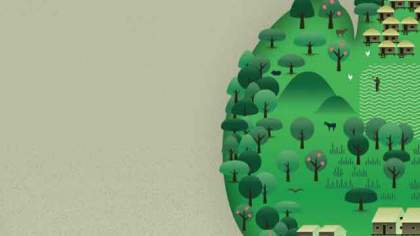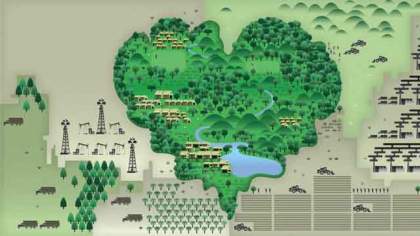-
What is 'Women Champions of Buffalo River' about?
This video is about a powerful women-led movement for indigenous land rights, from Loliondo, Tanzania. Without the community’s consent a large part of their lands were occupied. When the women in the community realised that the efforts to defend their territory were failing, they decided to take matters into their own hands. The women used awareness-raising, protests and political pressure to lead a movement in defence of their territory.
Length of Video
15 minutes.
Download 'Women Champions of Buffalo River' here
Watch in Swahili, Spanish, French, Indonesian
Suggestions for Discussion Questions after community screenings
- What does leadership mean to you? What is the role of women in leadership roles in your community?
- Do the women in your community take a central role in defending territory? If not, what are the barriers to women's involvement and how can these be overcome?
- In this story, the women carried out awareness raising to build the confidence of other women to participate in defending the territory. What topics could this awareness raising cover in your community?
- In this story, the women used a variety of strategies (protests, political pressure, mass media, legal system, etc.) to defend their territory. What strategies are possible in your situation and how could you plan them and implement them?
- The women in this story talk about unity being the key to a successful struggle. How can you encourage unity in your community? (For instance, through awareness raising, music and songs, communal work, encouraging participation by all, etc.).
- The communities in this story felt ownership of their struggle and this helped it to be sustainable. What can your community do to help develop a feeling of ownership? (For example, financial contributions, participation, etc.).
Suggestions for Follow-up Activities after community screenings
- Set up a women's group to plan and take forward awareness raising in the community.
- Look for openings for women's representation in village councils, land discussions, local politics etc.
-
Documents and Downloads
Loosing the Serengeti
Report by the Oakland Institute which outline the land conflict in Loliondo, Tanzania where hundreds of Maasai homes have been burned and tens of thousands of people driven from ancestral land in Loliondo in the Ngorongoro district in recent years to benefit high-end tourists and a Middle Eastern royal family.
Realizing Indigenous Women’s Rights: A Handbook on the CEDAW
This handbook is an introduction to the human rights of indigenous women. It provides details on the Convention on the Elimination of All Forms of Discrimination Against Women (CEDAW) as the only instrument specifically for women. It also provides a brief overview of the other available human rights mechanisms (Tebtebba, the Asian Indigenous Women's Network & Forest Peoples Programme, 2013).
Toolkit on the Inter-American human rights system for indigenous women Pt.1
In order for the Inter-American human rights system to adequately recognise, protect and fulfil the human rights of indigenous women, it is necessary for indigenous women to engage with the system, to make their voices heard and to tell their stories with all their complexities. This toolkit, which contains a series of information notes explaining different aspects of the Inter-American system, is designed to help indigenous women and their advocates to use the system effectively (Andrea Galindo, Ellen-Rose Kambel & Valérie Couillard (FPP), 2015).
Toolkit on the Inter-American human rights system for indigenous women Pt.2
In order for the Inter-American human rights system to adequately recognise, protect and fulfil the human rights of indigenous women, it is necessary for indigenous women to engage with the system, to make their voices heard and to tell their stories with all their complexities. This toolkit, which contains a series of information notes explaining different aspects of the Inter-American system, is designed to help indigenous women and their advocates to use the system effectively (Andrea Galindo, Ellen-Rose Kambel & Valérie Couillard (FPP), 2015).
Indigenous Women of the Americas: guidelines to confront situations of multiple discrimination
'Indigenous Women of the Americas - Methodological and conceptual guidelines to confront situations of multiple discrimination' presents guidelines for working with indigenous women, which were collectively created from experiences in Canada, Mexico, Colombia and Argentina. We hope that our efforts will contribute to the building of a detailed methodology to deal with discrimination against Indigenous Women both when bringing cases to justice and when conducting research (Multiple NGOs, 2014).
HerStory of Empowerment, Leadership and Justice
HerStory of Empowerment, Leadership and Justice is a result of the tireless dedication of the Asia Indigenous Peoples Pact (AIPP)'s partners from indigenous communities in the Philippines, Northeast India, Mainland India, and Nepal. This publication is a reflection of the hard work of everyone involved in the Empowering Indigenous Women in Traditional Customary Institutions project, especially the women in the communities AIPP have been engaging with over the past three years. Here, 18 of these women have bravely shared their stories to empower and promote the solidarity of all indigenous women (AIPP, 2014).
Other videos
The Land Question
Loliondo Land Conflict - Tanzania - Land, it's been said, is the only thing worth working for, fighting for and dying for - because it's the only thing that lasts. That said, across Africa people remain dispossessed of their land, with governing parties seemingly more interested in talking about it than returning it.
Message from the Maasai
The Maasai from Tanzania are one of Africa’s oldest tribes. The Tanzanian government has just announced that it plans to evict thousands of Maasai families from their lands so that wealthy tourists can use them for elite hunting safaris. This is a video message from the Maasai to request global solidarity for their struggle to protect their territory and culture. (LifeMosaic / NGOnet)
Speaking out: Indigenous women leaders in Peru
In this video, Nery Zapata speaks about the difficulties of being a woman from a minority group in Atalaya, leading the indigenous local organization. As President of CORPIAA and Coordinator of the Veeduría, she has an important role. Reaching and remaining in her position has required self-confidence and determination, as is evidenced from her words. The video also features Patricia Cachique, an indigenous leader from the native community Boca Apinihua. Patricia emphasizes the importance of training women as well as men in issues related to forest management and climate change, and points out the importance of shared knowledge between women and men if there is to be shared decision-making (Helvetas Perú, 2015).
Indigenous Women’s Rights
We live in a time when public opinion is demanding a fairer and more equitable planet. There is no more important element to address this than the equality of men and women. This 4-minute animation video outlines the recommendations from CEDAW (Convention for the Elimination of Discrimination Against Women) and UNDRIP (UN Declaration on the Rights of Indigenous Peoples) particularly on indigenous women that guide and help us to move in this direction. (AIPP, 2013)
Fever: Organisation (English)
Part 3: Organisation gives examples of organisational tools and strategies used by indigenous peoples to protect their cultures, territories and rights. The film covers: awareness raising; organisational tools; networks and communication; petitions; legal cases and international law; unity, life plan; spirituality; movements. (LifeMosaic, 2010)
Community Organising in Plantations
This is part 2 of a 2 part film about industrial timber plantations (HTI) in Indonesia. The film is designed to be used by local facilitators and communities whose lands are in or near existing HTI permit areas, or in areas where new permits for mills or HTI plantations will be allocated. This film looks at strategies and tactics that communities are using to defend their rights when facing Industrial Tree Plantations. There are many examples where communities have been successful in getting what they want for the future of their land. Some communities may want to negotiate with the company specifying which areas of community land the company can use, and which areas it must leave alone. Other communties may chose to refuse mills or plantations on their lands altogether, and others may wish to regain their lands from a HTI concession that is already established. For any of these situations it is essential that a community is well organised, well informed and united in order to make wise decisions and effective strategies for their futures. (LifeMosaic, 2012)
Related links
Toolkit on Indigenous Women’s Rights in Africa
Forest Peoples Programme has created this toolkit, comprising 11 information notes, to help indigenous women in Africa to better understand the African human rights system and how to use it effectively to secure their rights (FPP, 2015).
Pastoral Women’s Council (Tanzania)
The Pastoral Women's Council is a community-based organisation which works with pastoralist and agro-pastorialist women in the Ngorongoro and Longido Districts of the Arusha region, in north-eastern Tanzania. PWC's website contains a wealth of information, links and publications related to their work and the situation of pastoralists in northern Tanzania more generally.
The Ecotourism Industry Is Saving Tanzania’s Animals and Threatening Its Indigenous People
In-depth reporting into the Loliondo land conflict affecting the livelihoods of pastoralists in northern Tanzania by Jean Friedman-Rudovsky. Originally published on May 12, 2015 (Vice News).
-
The loss of ancestral lands disproportionally affect women: gathering firewood, growing crops and subsidising family income by selling surplus products. Despite a deep connection to the land, women are rarely part of decision making processes surrounding land deals. When communities are displaced from the land, women may fall prey to human trafficking and prostitution, and face multiple levels of discrimination.
‘Women are generally the primary custodians of seed diversity and wild biodiversity, and therefore play a critical role in maintaining the health and resilience of the local ecosystems. When they are marginalised, this knowledge and the role they play is also undermined’ (Gaia Foundation, 2014, p.32).
IIED estimates that 70% of global land grabs are concentrated in Sub-Saharan Africa. In Tanzania for example, over 4 million hectares of land have been requested by foreign investors for both agrofuel and food production. Pastoralists and hunter-gatherers communities have suffered extensively in terms of socio-economic, cultural and political rights due to policies that systematically marginalise them.
In the United Republic of Tanzania, five years after a major titling effort had begun, pastoralists reported their eviction from multiple common grazing areas and were under threat of losing other grazing lands because those lands had been classified as “unused” (from “UN Access to Land and Land Rights”).
-
Women Champions of Buffalo River News
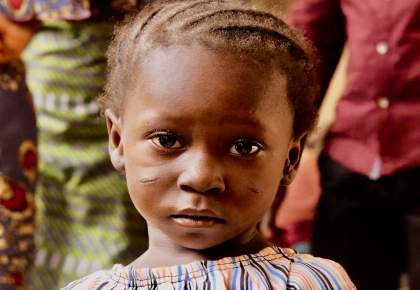
Tuitunze Asili, Kutetea Maisha (Swahili)
Tuitunze Asili, Kutetea Maisha (Swahili)
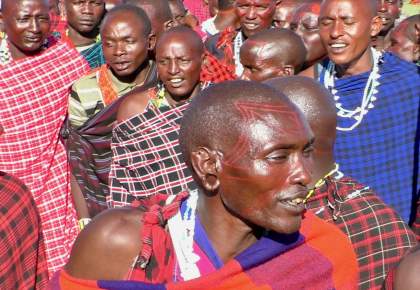
Olarrabal lengiminata o lkwak, kimitu Engishon (MAA Language)
Olarrabal lengiminata o lkwak, kimitu Engishon - MAA Language
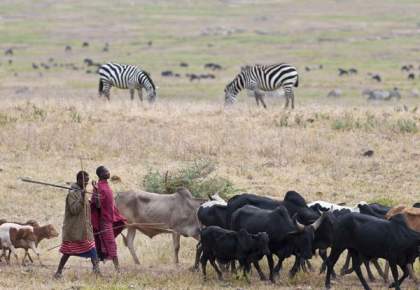
Tanzania ends hunting deal near Loliondo with UAE royal family; compromised government officials
Tanzania ends hunting deal with Dubai royal family (Source: Africa Sustainable Conservation News)
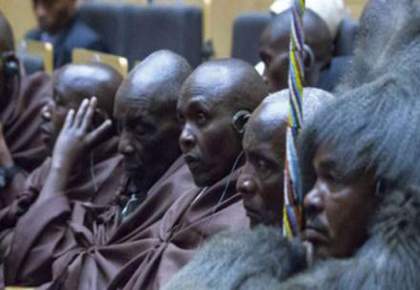
Huge victory for Kenya’s Ogiek
African Court sets major precedent for indigenous peoples’ land rights (FPP / Minority Rights Group International)
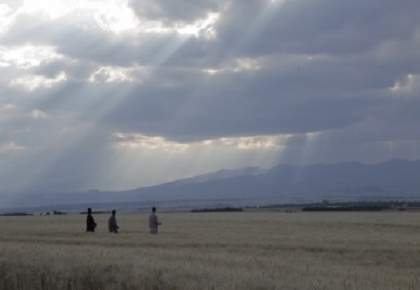
World Bank Ignores Land Grabbing
Sales of huge land areas of Ethiopia, by the Ethiopian government, to foreign investors, have led to starvation and forced displacement. (Flood / Arbetet.se)

Territories of Life workshops with the Shawi people
In late February 2017 LifeMosaic and Peru Equidad facilitated a three-day workshop for Shawi community leaders in the village San Antonio, Loreto department, Peru.

The Community Land Act: Now it’s up to communities
At last Kenya has a Community Land Act. (By LIZ ALDEN WILY)
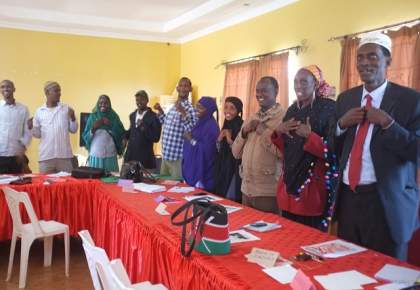
Teritories of Life Launch, Kenya
In June, LifeMosaic brought the Territories of Life toolkit to Kenya, in partnership with the Kivulini Trust and the Waso Trustland Project.

MRG deeply disappointed by Arusha Court land rights judgment against Loliondo Maasai
A High Court ruling, handed down on October 28, 2015, against a Maasai community from Northern Tanzania, is deeply disappointing, says Minority Rights Group International (MRG press release).
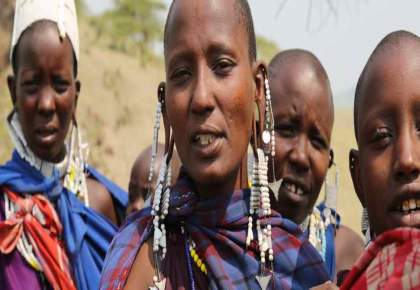
New Video: Women Champions of Buffalo River is launched
A new video from the Territories of Life video toolkit tells the story of how Maasai indigenous women in Tanzania used awareness raising, protests and political pressure to lead a movement in defense of their territory.

Northern Tanzania Maasai Land Loss Threatens Indigenous Knowledge
After a five year gruelling court battle, the indigenous Maasai community in Northern Tanzania has lost the right to its traditional land after the High Court handed it to a US-based tourism company in a court ruling on 27 October. (Nzwili / Intellectual Property Watch)

Ecotourism Is Saving Tanzania’s Animals and Threatening Its Indigenous People
For more than a century, the Maasai have been corralled into smaller pieces of land in order to conserve the environment and animals— making room for deluxe suites and armies of tourists. (Friedman-Rudovsky / Vice.com)
Women Champions of Buffalo River - Territories of Life
Maasai indigenous women in Tanzania used awareness raising, protests and political pressure to lead a movement in defense of their territory.


